Was 2022 a bad year for the movies?
Through good portions of the year, it certainly felt like it. More and more reports about dwindling box office numbers or questionable quality in big-name releases have been released amid a more general feeling that the movies are just not quite what they used to be. Oscar-contending movies from established auteurs like TÁR and The Fabelmans garnered heaps of critical praise, but almost nothing in audience returns. The Edinburgh International Film Festival, the world’s oldest continually running film festival and a staple of the international film community, announced its end. Major blockbusters were worse than usual, too: movies like Jurassic World: Dominion, Black Adam, and Thor: Love and Thunder were putrid, and left a stench over genuine triumphs like The Batman. Blonde made everyone feel gross. Wherever you looked, there was a pervasive feeling that the movies might be spiraling towards their doom.
But 2022 also had its fair share of bright spots. Everything Everywhere All At Once took in a record $100 million for A24, and showed Doctor Strange in the Multiverse of Madness just what a movie about the multiverse could really do. The Telugu-language RRR was a rip-roaring success, revealing a visceral mode of action cinema. And of course there was Top Gun: Maverick, an blockbuster so awe-inspiring that every living human being returned to the cinema. Thus far, it has made just under $1.5 billion globally, none of which speaks to its recent record-breaking performance on Paramount+. Tom Cruise is still the truth, baby.
So, yeah, there were a lot of negative headlines, but there were also a lot of good movies this year. A lot of great movies, in fact, which makes me question if one could truly call 2022 a bad year. Yes, TÁR and The Fabelmans made no money, but they are also damn fine works that will surely stand the test of time. With streaming services having now fully conquered the world, it has also become ever more difficult to gauge their success. I like to hope that audiences who might be interested in an Oscar-contending Cate Blanchett performance would be persuaded to check out TÁR in their home theaters.
So was 2022 a bad year for the movies? Hell if I know. I’ve faced this paradox many times. Typically, through the first eleven months of a given year, I bemoan the quality of movies in cinemas, only to turn around in December and realize that I consumed quite a bit of goodness. Data and big-budget quality suggest a struggling industry, yet when I look over the 160 movies I’ve watched this year (a personal record), I have no problem finding excellence.
2022 has been a difficult year for me personally, and the movies in the list below have helped me through it. I have found myself more and more enmeshed in the world cinema than ever before as I have watched, read, discussed, and debated the movies at my Master’s program at the University of Edinburgh, through my new job as a curator for the Common Good Film Festival, and best of all, with my work here at Airplane Mode. I’ve loved having a place to turn to get my thoughts out into the world, and especially to have people engage with them. Thanks to anyone and everyone who has checked out this little attempt at film criticism.
On with the list!
Marcel the Shell with Shoes On (Dir. Dean Fleischer Camp)
Based on Jenny Slate and Dean Fleischer Camp’s YouTube stop-motion animation of the same name, Marcel the Shell with Shoes On is a beautiful anomaly of a film. Here’s the pitch: Filmmaker Dean Fleischer Camp, playing a fictional version of himself, decides to make a documentary about a charming, one inch-tall shell named Marcel. The two find themselves becoming fast friends, developing a wonderful relationship. The film is as ridiculous as you might expect, yet it has all the charm and personability that you could possibly hope for. Marcel (played by Jenny Slate) and Camp’s rapport is personable and genuine, among the year’s best onscreen friendships. A brilliant synth score by Disasterpeace adds quiet allure to a film already steeped in ethereal visuals.
Riceboy Sleeps (Dir. Anthony Shim)
The sophomore feature by writer-director Anthony Shim, based in part on his own life, is a stunning coming-of-age tale, and one of the year’s most empathetic experiences. The film follows mother So-Young (Choi Seung-yoon) and son Dong-hyun (played as a child by Dohyun Noel Hwang, as a teen by Ethan Hwang) after they move from Korea to Vancouver, BC. Dong-hyun’s upbringing is marred by a potent sense of immigrant alienation, captured brilliantly in Christopher Lew’s serene, roving camerawork.
Hit the Road (Dir. Panah Panahi)
A family of four embark on a road trip through the Iranian countryside with unknown intentions. The husband (Mohammad Hassan Madjooni) and wife (Pantea Panahiha) bicker across the front and back seats; their eldest son (Amin Simiar) sits quietly in the driver’s seat. Upstaging everyone is their tween son (Rayan Sarlak), who screams and laughs and belts in the half-charming/half-obnoxious manner that only a child of that age can manage. Hit the Road, the debut feature by Panah Panahi, son of famed filmmaker Jafar Panahi, is a road movie that isn’t quite what it seems. Personal, political, and palpably emotional, Panahi begins his filmmaking career with a bang.
Riverside Mukolitta (Dir. Naoko Ogigami)
My favorite film out of Vancouver International Film Festival is an oddity; Riverside Mukolitta is a story of death, routine, and communal redemption, directed by Naoko Ogigami with a novelist’s eye for character. The film follows ex-con Takeshi Yamada as he moves into the Mukolitta apartments, home to a number of strange characters comprising an equally strange neighborhood. Takeshi struggles to reckon with his past, but through his community learns to appreciate life’s “little moments of joy”—an emblematic quote that captures Riverside Mukolitta’s love for those things that make life worth living. (Read my original review here.)
TÁR (Dir. Todd Field)
Many have called TÁR a “cancel culture movie.” This would be a false assertion. Yes, it centers on a problematic power player at the height of her influence, and watches as her abhorrent behaviors are unearthed to the public through a social media outpouring. But TÁR is far more than the label “cancel culture movie” would imply. This isn’t a film relegated to 21st century commentary, but is instead open to grander sociological implications of charismatic power and its machinations. Todd Field has constructed this film with clinical detail, allowing audiences to read into Lydia Tár—a “genius” classical music conductor played with Oscar-worthy verve by Cate Blanchett—whatever they wish.
The Banshees of Inisherin (Dir. Martin McDonagh)
Martin McDonagh’s first feature film, In Bruges—a razor-sharp black comedy starring Colin Farrell and Brendan Gleeson—has long been in my top five favorite films of all time. The Banshees of Inisherin, his fourth film, echoes In Bruges in more ways than one. Farrell and Gleeson play Pádraic and Colm, two friends living on the fictional Irish island of Inisherin. One day, Colm tells Pádraic the words that will forever change their friendship: “I just don’t like you know more.” Thus sets the stage for a masterful existential comedy, a tragically hilarious breakup story set in purgatorial wilderness.
Everything Everywhere All At Once (Dir. Daniel Kwan and Daniel Scheinert)
There is nothing subtle about Everything Everywhere All At Once, Daniel Kwan and Daniel Scheinert’s bombastic, orgiastic, candy-coated explosion of multiversal nihilism. Michelle Yeoh plays Evelyn Wang, a Chinese-American laundromat owner thrown into the multiverse by an alternate version of her husband Waymond (a brilliant Ke Huy Quan). Reality then turns into absurdity, with The Matrix-inspired Kung Fu sequences, Ratatouille jokes, hot dog fingers, and Wong Kar Wai-style melodrama scenes that cause me to sob uncontrollably. That Everything Everywhere works at all is a miracle. That it works so well is a reality-bending triumph. (Read my original review here.)
EO (Dir. Jerzy Skomilowski)
The best performance from a donkey you’ll see all year. And Banshees of Inisherin has a damn good donkey performance. (Read my original review here.)
After Yang (Dir. Kogonada)
With After Yang, filmmaker Kogonada has created a true masterpiece: a plaintive, meditative sci-fi drama about family, technology, the meaning of life, and everything that fills the soul. The film follows a family of four: Parents Jake (Colin Farrell) and Kyra (Jodie Turner-Smith), adoptive daughter Mika (Malea Emma Tjandrawijaja), and Yang (Justin H. Min), the family android. Yang serves as both an assistive parent to Jake and Kyra while also being a symbolic older brother to Mika.
Early into the film, Yang dies. But can the concept of death really apply to an android? After Yang, an endlessly rich text, ponders these kinds of questions with a philosophical sophistication that never feels pretentious. Justin Min is truly magnificent as Yang, blending humane curiosity with mechanical mental precision. His performance is the key to this exceptional film.
The Worst Person in the World (Dir. Joachim Trier)
The Worst Person in the World is the story of Julie (Renate Reinsve), a late twentysomething young woman struggling to find the right job, the right boyfriend, the right life. Everything offers a path forward, but nothing quite fits. Throughout the course of the film she enters into two relationships: One with Aksel (Anders Danielsen Lie), the other with Eivind (Herbert Nordrum), each of whom offers a different possibilty for a future life. Even by the end of the film, Julie never quite grasps that no path is the One Correct Choice, in turn relegating herself to an endless pursuit of perfection.
Here’s the thing: I don’t know that I can truly call The Worst Person in the World the best film of the year. (That honor should go to the aforementioned After Yang, which has such sheer filmmaking beauty that almost nothing can compare.) But it would also be wrong for me to put The Worst Person at anything other than my number one. In a year that has been quite difficult for me personally, Joachim Trier’s story of a young woman trying and failing to find her place in the world struck me at a level that I still cannot quite put into words. I’ve seen it four times, and will without question be watching it again. This is among my top 10 favorite films of all time—if for sheerly personal reasons. (Read my original review here.)
If you have a top ten, a top five, or a top one, let me know in the comments below!
A couple notes on the construction of this list:
You may notice that some of the picks on this list were released in 2021—specifically my No. 1 film. This, at least, according to US release dates. I lived in the UK for much of this year and the last, where release dates were sometimes different. If the movie released in the UK while I was living there, then I’m counting it as suitable for this list.
If I have done so, I will link the following films to reviews I have written for them. Some of them will from here on Airplane Mode, others will be from my writing profile at The Student, the University of Edinburgh’s student newspaper.
There were a few movies I didn’t get to see before the end of the year, but would have liked to. The most prominent of these include Aftersun, All the Beauty and the Bloodshed, Athena, Corsage, Living, and Saint Omer.



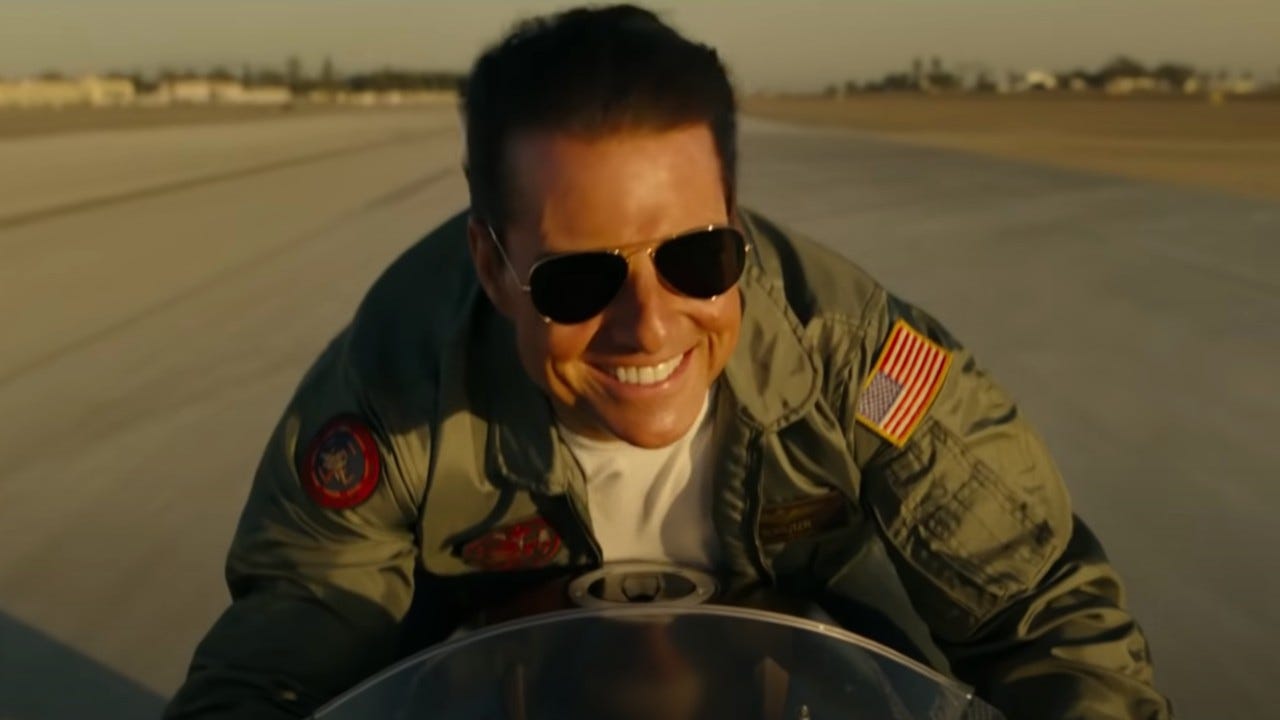



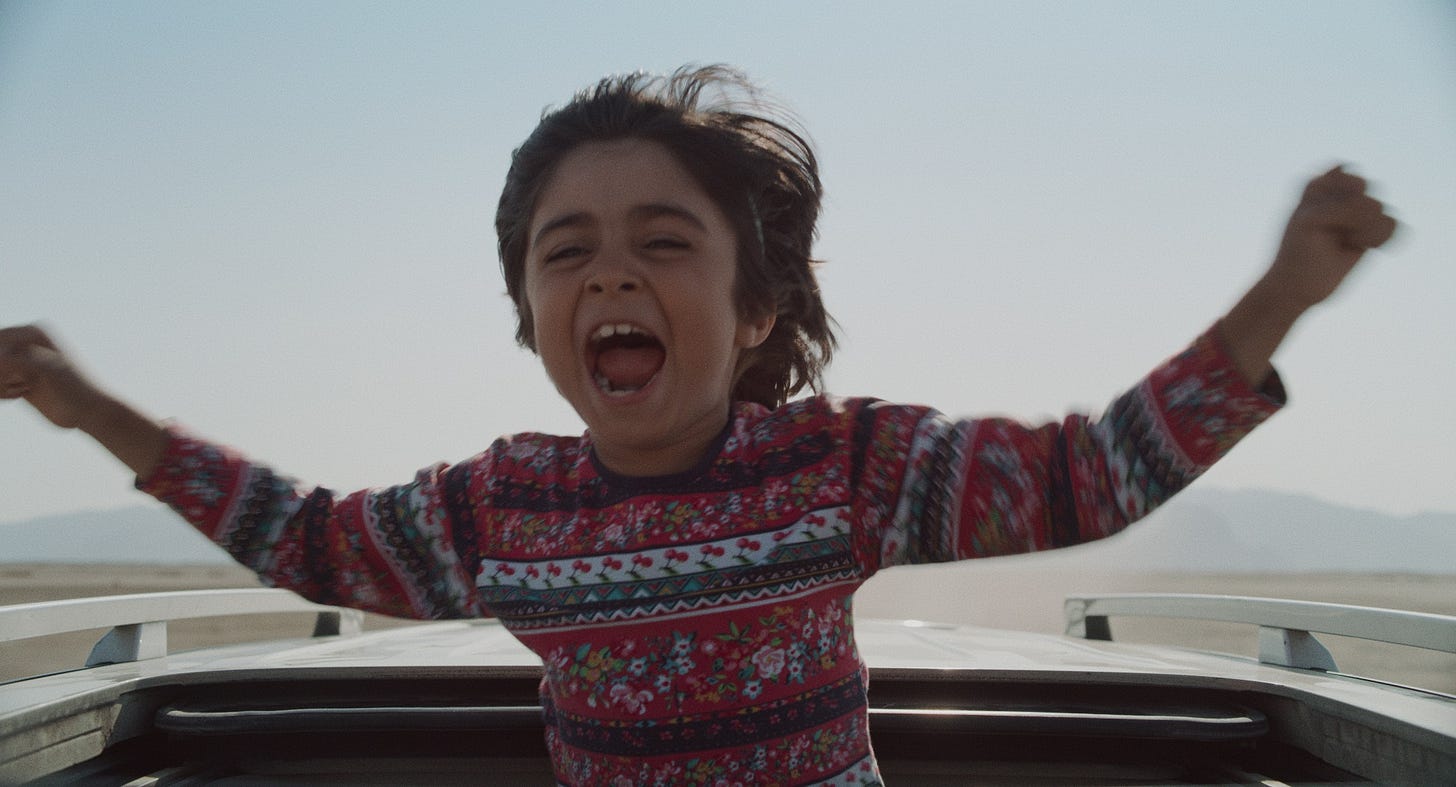


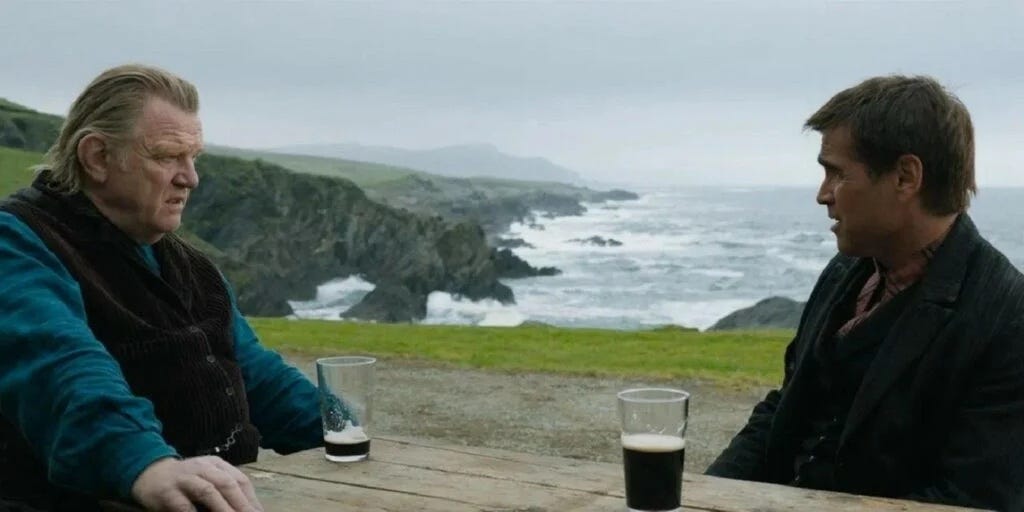

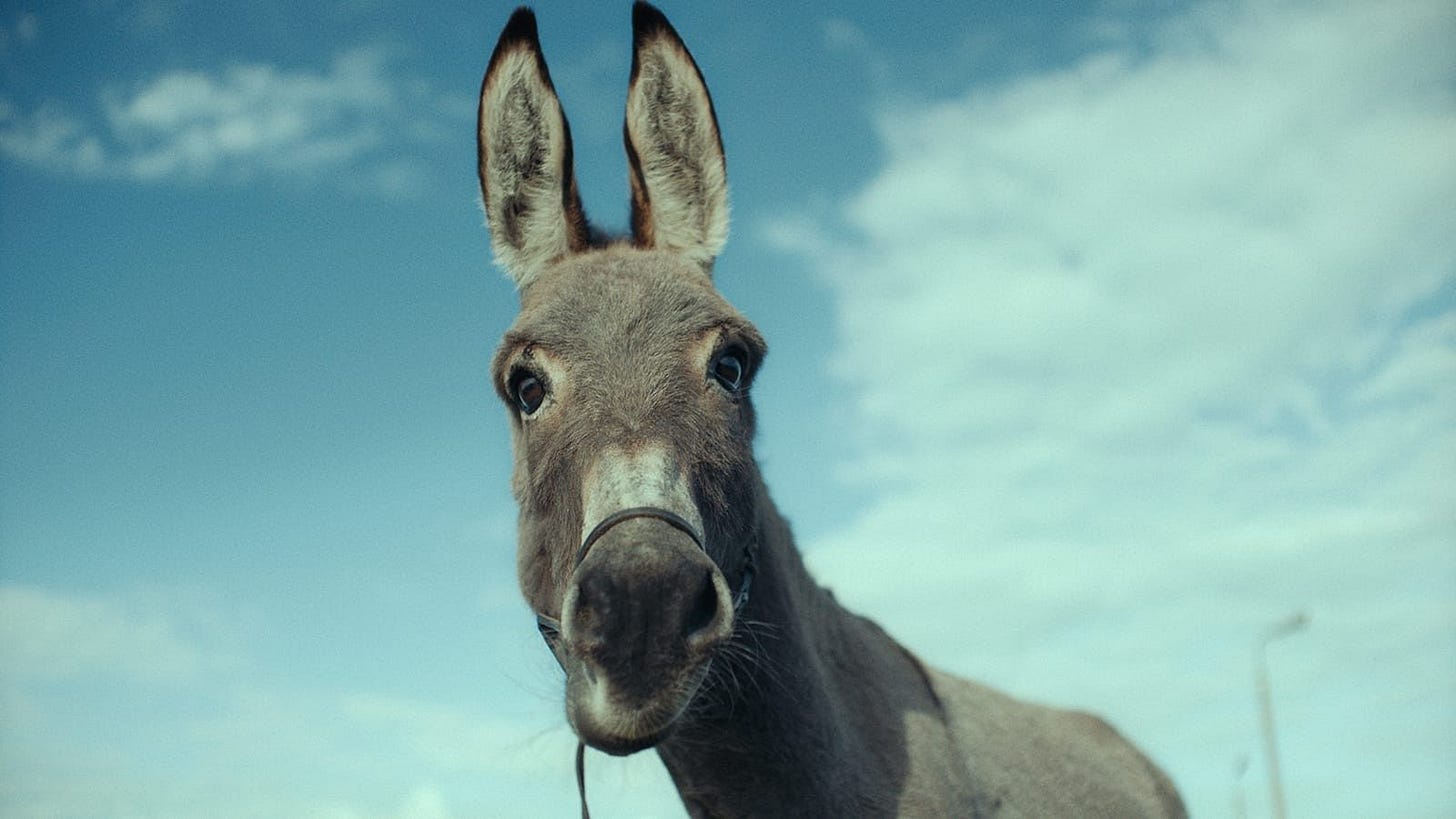
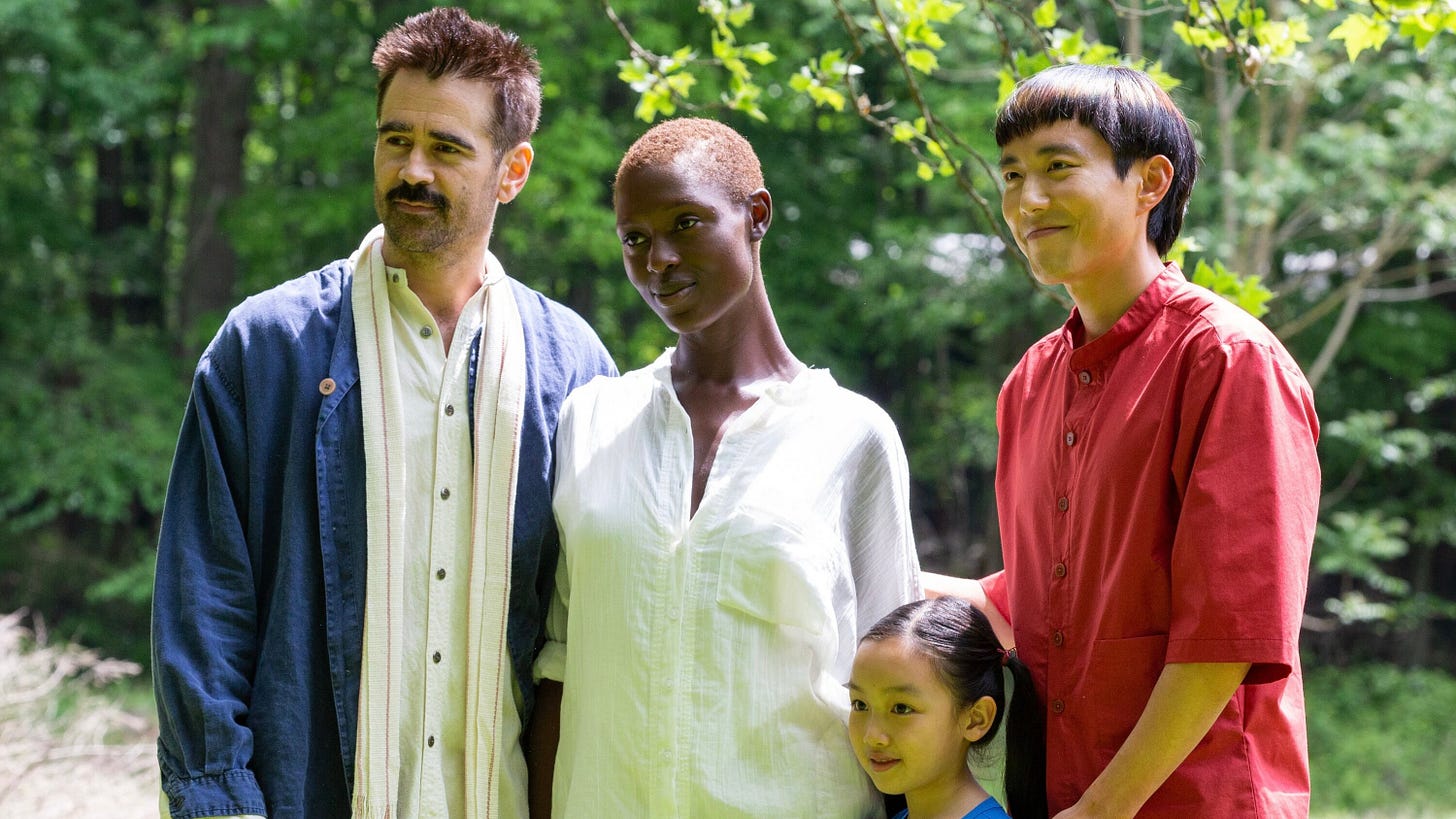

I love the take on Number 1. With some reflection and no objective metric, it is undoubtedly and singularly the 2022 film that's closest to my heart. Your take convinces me even more.
Great write up, been a pleasure reading this sub stack over the year 🤙